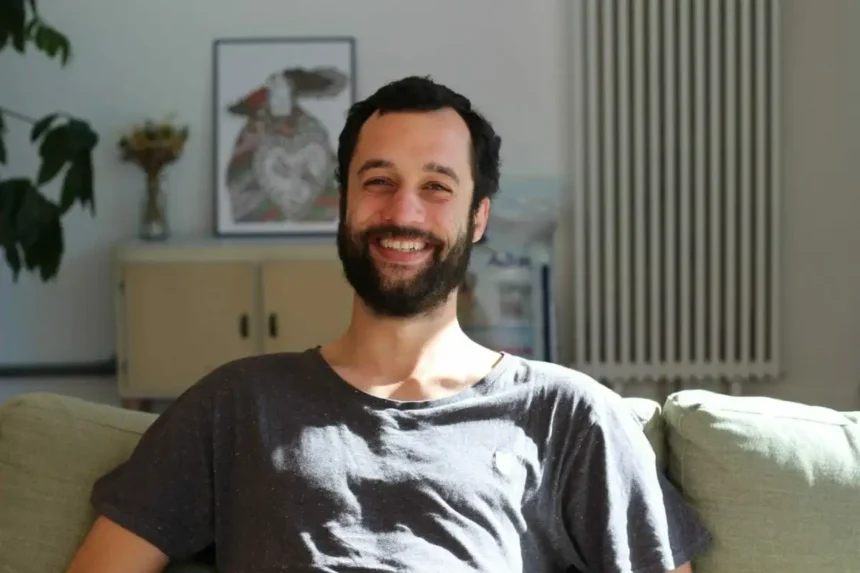Tweet Hunter is a bootstrapped SaaS that helps people grow and monetize their Twitter followings. Thomas is a 32-year-old Frenchman with ten years of marketing, product development, and business ownership expertise. He helped start Tweet Hunter, a bootstrapped SaaS that earns $41,000 monthly. Thomas’ background includes working as a product manager for a company and co-founding a business with Tibo. After releasing several items, Thomas noticed that Tibo’s Twitter account was rapidly attracting new users.
The growth and monetization of Twitter audiences are made easier by Tweet Hunter. The firm now earns $41,000 every month thanks to partnerships, social networks, and free tools.
What is your background and what are you concentrating on right now?
I am a 32-year-old Frenchman with ten years of marketing, product development, and business ownership expertise. I live in France’s Bordeaux.
I helped start Tweet Hunter, a bootstrapped SaaS that brings around $41,000 monthly. We help people grow and monetize their Twitter followings. I oversee a sizable chunk of the marketing and product.
What is your background, and how did you come up with this idea?
I worked as a product manager for a company up till a year ago. My former co-founder Tibo, with whom I co-founded a business, contacted me a few years ago. Following this informal “how are you doing” exchange, I quit my job and started working for myself full-time a few weeks later.
A product concept was lacking. We did have a problem in mind, though: how can we help other manufacturers find customers for their goods?
We thought the best way to deal with the problem was to tackle it head-on. Then, within a short period of time, we released several items.
following some time, I saw that Tibo’s Twitter account was rapidly attracting a few new users following its launch.
I had the following internal dialogue: “Man, I’m the marketing guy and he’s bringing the users, that stinks, I need to start tweeting.”
Then I did.
I also had terrible stage presence.
In fact, we already had a database of tweets that we were utilizing for another project, and we thought we could make it into a product that would be a source of inspiration for people’s own tweets.
So we succeeded. And I use it. I quickly honed my Twitter talents and did so in a lot less time.
This is where it all started.
How did Tweet Hunter get made?
The interval between the idea’s inception and its execution was a week. Tibo and another developer on the technical side finally chose not to devote any further work to the project. I also gave the goods and marketing my utmost effort.
The development of a searchable Twitter archive and an online sign-up procedure with payment choices takes a few days.
We thought we were being quite ambitious when we set our sights on a $9/month pricing (spoiler alert: we weren’t).
We then took off. Mostly on Reddit and Twitter.
We instantly started getting sign-ups and a few paying clients. Tibo and I agreed to give this project our whole attention since we thought we were onto something.
What marketing techniques did you use to grow your company?
We took part in many different activities.
We used a couple subreddits and our Twitter accounts to announce our initial launch. We also made use of the email list we had built up from earlier offerings.
Then, we started creating free auxiliary goods and resources, which we then published on Product Hunt.
As a result, we were able to reach $5,000 in MRR in just three months.
Then, we collaborated with JK Molina, a renowned authority on tweet creation and Twitter growth who has a sizable following in these fields. He loved the product and wanted to work with us, so we gladly welcomed him as a co-owner.
He launched for his audience, and in a couple of weeks, we increased our monthly recurring revenue (MRR).
We have created a ton of brand-new features that are crucial for Twitter users who want to increase their visibility, such scheduling, automations, and other features. We had also raised our pricing to where they are now.
Our increase over the previous month has primarily been organic. In order to be in the forefront of people’s minds anytime they consider using a Twitter tool, we planned a Twitter growth contest, a Twitter growth conference, and a few other like events because we enjoy doing “eventful” things.
What are your long-term goals?
We like moving from idea generation to income generation. I’m not sure if we’ll want to assemble a sizable staff around our product just yet. Anything is conceivable even though it’s not in our DNA.
I think that at some time, Tibo and I want to figure out how to keep Tweet Hunter growing while simultaneously creating new goods. The future’s contents will have to be determined by waiting.
By 2022, we intend to generate $1 million in ARR in terms of pure revenue.
I want to buy a house this year, that’s my own goal.
What were the biggest challenges you faced, and how did you get beyond them?
Just always challenging. We strive to be the best Twitter tool accessible because we work in a cutthroat market. As a result, we are always developing a brand-new excellent feature that improves the product. Although challenging, we are skilled at it.
We used to be great at inspiration but terrible at things like scheduling and automation. But I think we’ve caught up now.
In addition, we were unprepared for the amount of growth we went through. On a few occasions, we published more tweets than we were allowed to each day, which stopped some of our planned tweets from going out. Fortunately, we were able to resolve the issue with the Twitter team, and we now have plenty of room to grow.
I’ve had to deal with a couple really challenging personal problems over the past few months. The fact that Tweet Hunter did well through those trying times was a blessing. I’m unable to imagine how different my work life might have been if things weren’t going so nicely.
What are your biggest flaws, exactly? What were your biggest mistakes?
I feel that collectively, we are incredibly creative and fascinated by all things novel. When you’re trying to decide what to focus on, it’s helpful, but if you find something that works, you have to put in more effort and start repeating the same chores, which is a drawback. To put it another way, ennui sets in.
We pack a ton of features into our products. This is undoubtedly a good thing, but it also implies that we need to spend more money on induction, the support center, explanations, etc. We had few features, little support, and no how-to guides when we first started. The time to get ready is now. We must take into account the reality that not everyone is accustomed to using SaaS goods.
Regarding mistakes, we made a ton of them. We have the luxury of making enough money, therefore we don’t always make investments where they are most needed. A few marketing investments haven’t (yet) yielded any returns.
What actions would you do differently if you had the chance?
Tweet Hunter takes these things into account:
Always start with a more expensive price.
From the start, include tweet scheduling.
If we had made those choices, our numbers may be even higher now, but I’m happy with the choices we made. These are small elements that may have slightly improved the outcome.
I would have started my Twitter account sooner if I could go back in time, but I’m glad I did it in the end. Instead of business school, I should have gone to engineering school or a development boot camp.
What educational tools would you suggest for entrepreneurs who are just starting out?
I’ll be up forward about this: I don’t consume startup stuff on a regular basis. Unquestionably, a number of the resources are top-notch. But when I take a break from work, I really unwind. I don’t consume podcasts on startups.
This does not preclude me from having read or listened to some items, though:
My favorite startup book is The 4-Hour Work Week because it encouraged me to accumulate time wealth rather than monetary wealth.
I pick up a lot of knowledge from Twitter people.
Additionally, Wait But Why is my preferred blog.
For further information
You may sign up for Twitter by visiting Tweet Hunter.
We gather unique business case studies from all over the internet, to inspire you with a wide range of business ideas. This case study was supervised by our team and it definitely caught our interest. You can find other inspiring business stories here.







